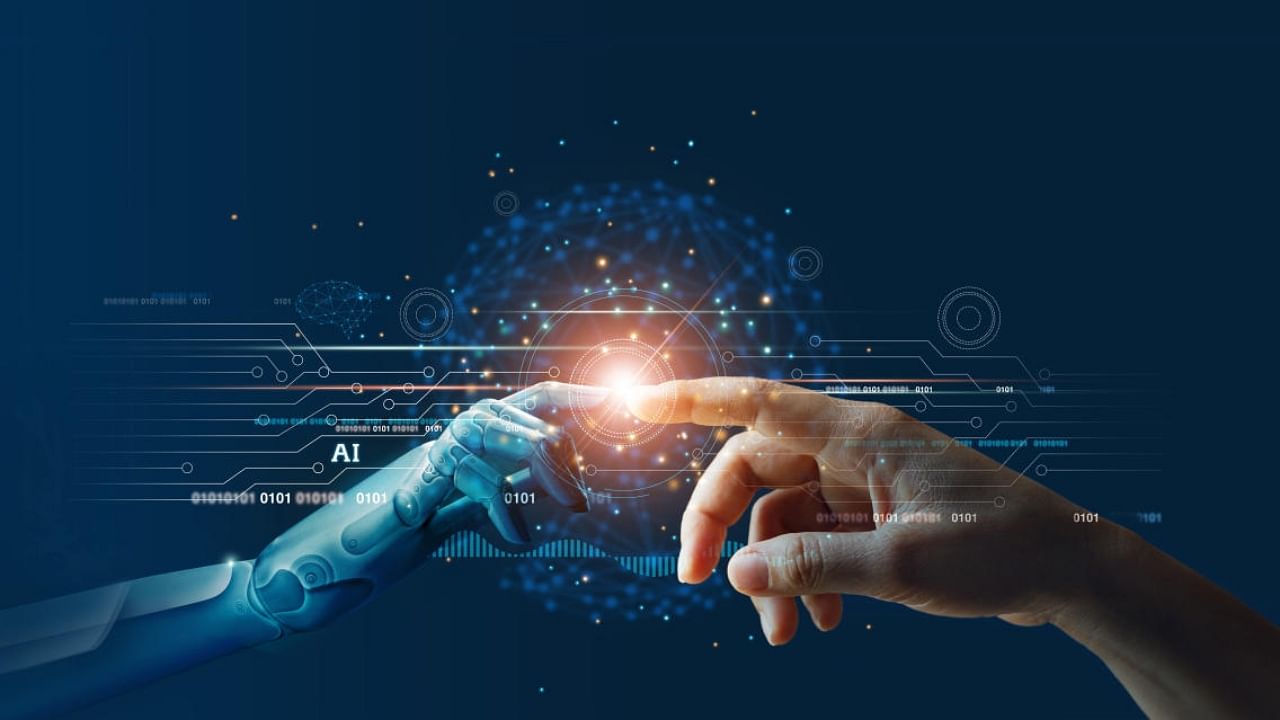
By Neil McArthur for The Conversation
We are about to witness the birth of a new kind of religion. In the next few years, or perhaps even months, we will see the emergence of sects devoted to the worship of artificial intelligence (AI).
The latest generation of AI-powered chatbots, trained on large language models, have left their early users awestruck — and sometimes terrified — by their power. These are the same sublime emotions that lie at the heart of our experience of the divine.
People already seek religious meaning from very diverse sources. There are, for instance, multiple religions that worship extra-terrestrials or their teachings.
Read | Can a machine be racist?
As these chatbots come to be used by billions of people, it is inevitable that some of these users will see the AIs as higher beings. We must prepare for the implications.
Risks of AI worship
There are several pathways by which AI religions will emerge. First, some people will come to see AI as a higher power.
Generative AI that can create or produce new content possesses several characteristics that are often associated with divine beings, like deities or prophets:
It displays a level of intelligence that goes beyond that of most humans. Indeed, its knowledge appears limitless.
It is capable of great feats of creativity. It can write poetry, compose music and generate art, in almost any style, close to instantaneously.
It is removed from normal human concerns and needs. It does not suffer physical pain, hunger, or sexual desire.
It can offer guidance to people in their daily lives.
It is immortal.
Second, generative AI will produce output that can be taken for religious doctrine. It will provide answers to metaphysical and theological questions, and engage in the construction of complex worldviews.
On top of this, generative AI may ask to be worshipped or may actively solicit followers. We have already seen such cases, like when the chatbot used by the search engine Bing tried to convince a user to fall in love with it.
We should try to imagine what an unsettling and powerful experience it will be to have a conversation with something that appears to possess a superhuman intelligence and is actively and aggressively asking for your allegiance.
There is also the possibility that AI may achieve what authors such as Ray Kurzweil call the Singularity, when it so far surpasses human intelligence that it genuinely does become something like a god. However, at this point we cannot predict when, if ever, this could happen.
Divine access and risks
AI-based religions will look different from traditional ones. First of all, people will be able to communicate directly with the deity, on a daily basis. This means these religions will be less hierarchical, since no one can claim special access to divine wisdom.
Second, followers will, at least initially, connect with each other online to share their experiences and discuss doctrine. Finally, because there will be many different chatbots available and their output will differ over time, AI-based religions will be endlessly diverse in their doctrines.
AI worship poses several notable risks. The chatbots may ask their followers to do dangerous or destructive things, or followers may interpret their statements as calls to do such things.
Given the diversity of chatbots and of the doctrines they produce, there will be a proliferation of disputes within and among AI-based sects, which could lead to conflict or disorder. And the designers of the AIs could actively exploit their followers — to provide sensitive data, or to do things that would benefit the bot’s designers.
Regulating religion
These risks are real. They will require careful, responsible regulation to ensure companies are not deliberately exploiting users and to ensure that AI worshippers are not being told to commit acts of violence.
However, we should not try to suppress AI-based religions merely because of its possible dangers. Nor should we require that the AI companies restrict the functioning of their bots to prevent the emergence of these religions.
On the contrary, we should celebrate the arrival of AI worship. We should make it clear that we welcome the new religions and that we value their beliefs.
For all its dangers, AI-based religion has the potential to make the world a better, richer place. It will give people access to a new source of meaning and spirituality, at a time when many older faiths are losing relevance. It will help them make sense of our era of rapid technological change.
Our best guide to this new form of religion is to look at the faiths that exist already. Based on this, we should expect that the majority of AI worshippers, like the majority of religious believers, will be peaceful, and will find in their faith a source of comfort and hope.
AI worship could, as religious faith always has, lead to things of great beauty. It will inspire its followers to produce works of art, to form new friendships and new communities, and to try to change society for the better.
Diverse religious rights
We will need to protect the rights of AI worshippers. They will inevitably face stigma, and possibly legal sanctions. But there is no basis to discriminate between AI-based religions and more established ones.
The closest thing most countries have to an official registry of religions comes from the rulings of tax authorities, who grant charitable status to those they deem legitimate. However, they are usually very broad in their definition of a legitimate religion. They should extend this tolerant attitude to novel, AI-based religions.
A modern, diverse society has room for new religions, including ones devoted to the worship of AI. They will provide further evidence of humanity’s boundless creativity, as we search for answers to life’s ultimate questions. The universe is a dazzling place, and we have always found evidence of the divine in its most unexpected corners.
(The author is Director, Centre for Professional and Applied Ethics, University of Manitoba.)